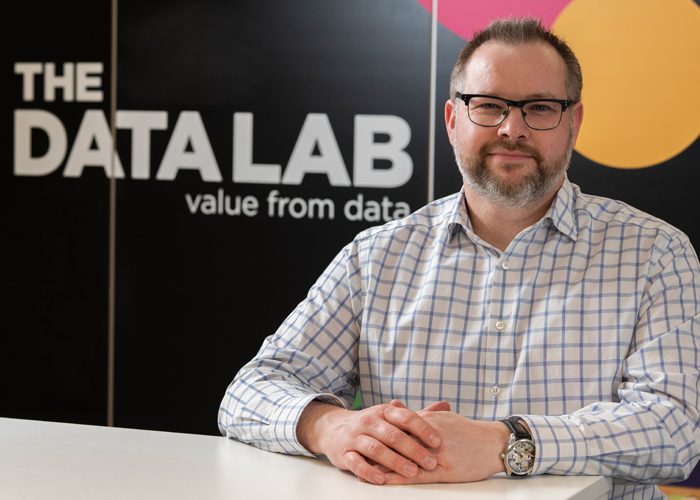With 2023 now well under way, Brian Hills, CEO at The Data Lab offers his thoughts on what’s likely to happen this year in the world of data, AI and machine learning.
I SEE 2023 as a year of opportunity for SMEs to drive innovation and adoption of data, AI and machine learning, and a time when more large organisations will embed AI technology into their ways of working. While many SMEs relied on digital investment to stay afloat during the pandemic, there is huge opportunity to leverage data from those investments to transform productivity.
For example, the Smart Manufacturing Data Hub is supporting SMEs in manufacturing to use data to improve efficiency, working with over 300 SMEs and creating valuable industry insights through a shared data exchange platform that can be leveraged across the UK Manufacturing sector.
There is great potential for the public sector to leverage data and AI to improve services and positive outcomes for citizens. I see some signs of this happening; however, we need to improve the knowledge and understanding of data and AI in public sector procurement, including ethical awareness, to help them become intelligent buyers of the technology, complemented by upskilling for users.
Data and AI will advance the transition to a NetZero economy
Data and AI will continue to play a key role in helping to both understand climate change and in designing and measuring policy interventions. The rapid growth in geospatial data from satellites combined with AI and other technologies provides new opportunities for innovation between academia and industry in the transition to NetZero.
Companies such as Trade in Space are working with leading academics at University of Edinburgh combining satellite data, AI and block chain technology to inform the trade of agricultural commodities and help their multinational customers develop sustainable and traceable supply chains.
It’s likely we’ll see more companies harnessing the green power of data through funding calls such as the UK Government’s AI for decarbonisation programme. We’re looking forward to seeing the innovative climate change solutions from the 11 companies awarded funding through our ‘Applying Space Data to the Net Zero Economy’ challenge run in partnership with Scottish Enterprise and the Scottish Government.
Data will continue to drive innovations in healthcare and wellbeing
Building on the use of data to help navigate the pandemic, data and AI will play a critical role in healthcare. From evidence-based approaches tackling issues such as delayed discharge, we’ll continue to see an increase in advanced uses of AI in the detection and treatment of disease.
For example, the ScotCap programme being rolled out across the NHS in Scotland is seeing patients swallow a tiny camera pill to screen for bowel cancer. This is already enabling remote screening, and access to early and effective diagnostic services, freeing up time for in-hospital appointments. A European project building on the success of this programme soon hopes to develop AI-supported image analysis of the endoscopy images at least as effective as clinicians screening for bowel cancer.
We’re focusing on enabling cross-sectoral collaborations and drawing more companies into capitalising on the capabilities of AI and machine learning through the launch of initiatives such as the Brain Health Technology and Data Challenge, a partnership between The Data Lab, Digital Health and Care Innovation Centre, Scottish Dementia Research Consortium and Brain Health Scotland. Continuing to create these pioneering collaborations has massive potential in helping our health system save lives, time and money.
ChatGPT
No prediction of data and AI in 2023 would be complete without a mention of ChatGPT. As per hype cycles in Big Data 10 years ago and the waves of AI breakthroughs over the years, ChatGPT will be at the forefront of discussion at conferences around the world this year, complemented by a deluge of online commentary and predictions on how this technology will revolutionise our businesses and lives with the potential to be a credible competitor to Google search. As Sam Altman, Founder of OpenAI who created ChatGPT, posted on Twitter:
“ChatGPT is incredibly limited, but good enough at some things to create a misleading impression of greatness. It’s a mistake to be relying on it for anything important right now. It’s a preview of progress; we have lots of work to do on robustness and truthfulness”.
Regardless, in 2023 ChatGPT has brought the discussion on AI to the masses and in doing so has ignited the welcome spark of debate across society on how we should use AI technologies in a responsible way.
